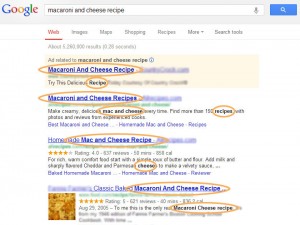Ever wonder why some websites always come up first when you use a search engine like Google? If you’ve tried to find out, you’ve probably run into the phrase ‘Search Engine Optimization’ or SEO. Sounds like technical jargon, right? The phrase is often thrown around as an important part of how Google decides what order websites are listed in, but few sources seem to explain what it means. So where can you find out?
Well, savvy reader, you’re in luck! I’m gonna explain the 8 most important parts of what SEO is and how it works. Whether you’re the owner/operator of a business site, a rookie web developer, or just curious why when you search ‘kittens’ on Google, the ASPCA is always on the first page; this article will answer your questions about how Google decides who’s #1.
So… What is SEO?
Put simply, SEO is a way that websites ensure their site is likely to be put at the top of the list- or optimized- for a search engine. What that means is that websites can design their site, the content, and a few other things so that search engines list it first. So how do they do it?
1. A rose by any other name
Sites like youtube or facebook don’t have simple names just to look cool, they do it so their SEO is higher. Typically, the simpler a website’s name, the higher Google ranks it. So ‘example.com’ is going to have a much better SEO than ‘wehaveterribleSEO.html/9fqQ34s=1m/wp6+…’ You get the picture. If you own a site, you want high SEO, which means a simple and clean domain name.
2. A Keyword’s worth a thousand words
In fact, in the blurb that comes with each result on Google, keywords are, well… key! You know how sometimes the words you searched appear in bold in the blurb? Those are keywords that the site has put into the content to make sure they come up when those words are searched. Some sites will spam keywords, listing them one after the other. But Google (and most internet users) know better than to trust them.
3. It’s not what you say, it’s how you say it
Content is arguably one of the most important attributes of a website. It’s not just the words; it’s the images, videos, links, and more. Turns out, Google agrees. The more content on a website – even the types of content – the more likely Google is to dig it. Apparently, Google even knows if a business site uses social media. So get crackin’ and let Google know you’re seriously social!
4. We came. We saw. We converted.
Not sure how many visitors your website gets each month? There are a lot of great tools for checking metrics like that (Google Analytics is one of them; go figure). The more visitors or ‘traffic’ a website has, the more likely Google is to raise its ranking. Life may not be a popularity contest, but the internet sure is!

(Image by Law_Keven)
5. Staring contest
If the average visitor looks at your website for 2 seconds, you’re probably not doing so well in Google’s listing. That’s because part of SEO is the average length of time a visitor spends on a site. How do you keep visitors engaged? Good design, good content, and a service that they’re interested in. I’ll be coming out with an article or two on some of this next week in more detail. But for now, I’ll say that a website is a presentation. Tell your audience who you are, what you do, and why they’re here.
6. The ticket is to click it
If you’re in sales, marketing, or web dev, you’ve probably heard of Click-Through-Rates or CTR. Essentially, CTR is a metric that measures the percentage of visitors that click a specific link. Odds are, if you have a link on your website, you want people to click it, right? Well, so does Google. The higher the CTR of each of your links, the higher your SEO.
7. It all ‘ads’ up
The amount of ad space that a website has is a pretty big factor in that site’s SEO. Google and other search engines see ads as a big no-no. Many spam sites load their content with keywords and then have almost nothing but ads taking up their real-estate so they can make a quick buck. How do you distinguish yourself from spam sites? Easy! Don’t have any third-party ads on your site! The money you make from them is almost definitely not worth the low SEO. Especially if you’re a legitimate business site.
8. Let’s give ’em something to talk about
A big help to boosting your SEO is to have your site or content mentioned by other people. Whether you’ve come out with a new product or service, or you’ve written a new article, or you have a promotion coming up- getting mentioned on by others not only boosts your inbound traffic, it boosts your SEO too!
Now that you know…
Use this knowledge! Whether you’re just an avid Googler who wants to get better at searching or seeing through spam, or you’re involved with a business site and want to raise your listing rank; YOU CAN! Follow these 8 guidelines for SEO and you’ll be on the right track.
If you have any comments, questions, or just want to take part in the conversation; please subscribe and comment. I’ll be coming out with helpful articles every week.





Everyone loves it whenever people come together and share ideas. Great blog, keep it up!